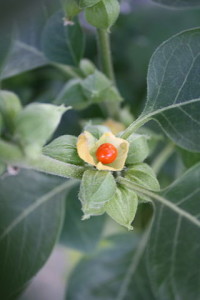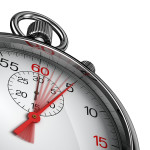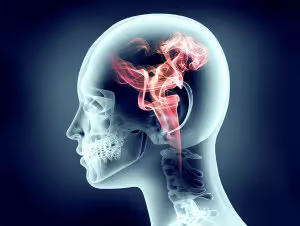Table of Contents
Ashwagandha (Withania somnifera) is one of the most powerful herbs powerful Ayurvedic herbs in healing. One of the main benefits of Ashwagandha is its remarkable stress-relieving properties. And stands shoulder to shoulder with some of the most potent drugs used to treat depression and anxiety.
In Sanskrit, Ashwagandha means “smell of horse”. Meaning this herb imparts the strength and vigor of a stallion.
Ashwagandha is native to India, Pakistan and Sri Lanka. And is now being grown in other regions including the United States.
Ashwagandha extracts helps protect your central nervous system and maintain brain health. It is a promising alternative for aging and neurodegenerative pathologies treatment including Alzheimer’s and Parkinson’s.
As an antioxidant, Ashwagandha seeks out and destroys free radicals. Free radicals have been implicated in many age-related diseases. There’s even some emerging evidence that Ashwagandha offers anti-cancer benefits
for brain tumors. Even though so much is out there stating that the active principles and underlying molecular mechanism (s) remain largely unknown for this ancient Ayurvedic herb.
Get ready to explore how Ashwagandha benefits your brain because we will go as deep as possible.
Ashwagandha helps:
- Reduce Stress: Ashwagandha helps reduce anxiety and depression. It reduces the stress hormone cortisol, lowers blood sugar levels, and improves lipid profiles.[i]
- Neuronal Regeneration: Ashwagandha helps regenerate axons and dendrites of brain nerve cells. And helps reconstruct synapses, the junctions where nerve cells communicate with other cells.[ii] Boosting memory and restoring neural networks affected by neurodegenerative disease.
- Neurotransmitters: Ashwagandha extract inhibits acetylcholinesterase. The enzyme responsible for breaking down the key neurotransmitter acetylcholine.[iii] Boosting memory, learning and cognition.
Overview

Ashwagandha (Withania somnifera) is one of the most powerful herbs in Ayurvedic healing. This Indian traditional home medicine as an herbal remedy has remarkable anti-depressant qualities. And has been shown to be as good as many prescription pharmaceuticals in treating depression and anxiety.
Ashwagandha is often referred to as “Indian ginseng” because of its rejuvenating properties. But botanically, Ashwagandha and ginseng are unrelated.
Native to India, Pakistan and Sri Lanka. Ashwagandha is now being grown in other regions including the United States.
Ashwagandha is in the same family as the tomato. It’s a small woody shrub with oval leaves, and five-petal yellow flowers. The fruit is red and the size of a raisin. The plant is also known as the “Winter Cherry”.
Ashwagandha is known as an adaptogen. Which means it helps your body adapt to stress, both mental and physical.
The Indian Materia Medica lists Ashwagandha for:
- general debility
- impotence
- general aphrodisiac purposes
- brain fatigue
- low sperm count
- nervous exhaustion
- where general vigor must be restored.
Ashwagandha extract has been shown to be an effective antioxidant in the brain. Clearing the cellular waste implicated in Alzheimer’s Disease.[iv]
Is also boosts memory and cognition. By reducing stress and increasing acetylcholine. And regeneration of nerve networks in the brain.
How does Ashwagandha Work in the Brain?
Ashwagandha boosts brain health and function in several ways. But two in particular stand out.
- Ashwagandha enhances GABA receptors and regulates serotonin in the brain. It appears to work on neuron receptors, enabling GABA to connect easier. This inhibits the signals present under a stress response in the brain. Anxiety is reduced.
A study was conducted at The Canadian College of Naturopathic Medicine with 75 volunteers with moderate to severe anxiety. Ashwagandha produced a significant decrease in anxiety levels over the control group.[v]
- Ashwagandha improves cognitive and psychomotor performance in a healthy brain.
Researchers at Nizam’s Institute of Medical Sciences in Hyderabad, India worked with 20 healthy male volunteers. In this double-blind, placebo-controlled trial participants were given 250 mg capsules of standardized Ashwagandha extract for 14 days.
Significant improvements in reaction time were reported at the end of the trial. The study suggests that Ashwagandha extract improves cognitive and psychomotor (physical reaction) performance even when you’re in the best of health.[vi]
How things go bad
Chronic stress and cortisol can damage your brain. Neuroscientists at the University of California, Berkeley found that chronic stress triggers long-term changes in brain structure and function.[vii]
Chronic stress changes neural networks. Cortisol creates a domino effect that hard-wires pathways between the hippocampus and amygdala. (The amygdala (lizard brain) is the area responsible for your fight-or-flight response).
This hard-wiring caused by stress is not the way the brain was designed. But chronic, ongoing stress tricks the brain into rebuilding circuits and hunkering down for the long haul.
This re-wiring appears to be permanent. Unless you intervene with something like Ashwagandha.
 Chronic stress seems to ‘flip a switch’ in stem cells in the brain. And turns them into a type of cell that prevents connections to the prefrontal cortex. Preventing improved learning and memory.
Chronic stress seems to ‘flip a switch’ in stem cells in the brain. And turns them into a type of cell that prevents connections to the prefrontal cortex. Preventing improved learning and memory.
And laying down the scaffolding linked to anxiety, depression and PTSD (Post Traumatic Stress Disorder).
↓ Chronic stress coats neurons in myelin
↓ Chronic stress reduces the number of neurons
↓ Gray matter decreases and white matter increases.
Under conditions of chronic stress and excess cortisol, your brain’s neurons are coated (or sheathed) in myelin.
Under healthy conditions this “sheathing” is a protective measure. But this excessive sheathing is likely an evolutionary measure made to reinforce the connection between the hippocampus and amygdala. Improving the fight-or-flight response during extended periods of threat or attack.
In the modern world, chronic stress hijacks your fight-or-flight response system. It backfires in daily life in which you are not in physical danger.
Ashwagandha benefits
Ashwagandha undoes damage to the brain caused by chronic stress. And helps keep it healthy.
Ashwagandha has such beneficial activities for cognitive function. Glycowithanolides, one of the many compounds found in Ashwagandha, reduces cortisol. And overall energy levels are enhanced through optimizing mitochondrial function.
It also has GABA-mimicking effects in the brain. Comparable to the effects of prescription benzodiazepines like lorazepam (Ativan).
Ashwagandha can also help prevent and repair damage caused by Alzheimer’s, Parkinson’s and Huntington’s disease. Through its antioxidant and inflammation-reducing mechanisms.
Ashwagandha even provides protection and regeneration of neurons during opiate and heroin withdrawal. And eases withdrawal symptoms.
 In Ayurvedic medicine, Rasayana herbs are used to promote a youthful state of physical and mental health. The ancients considered Medhya Rasayana herbs to be working with higher brain function. These are mind-rejuvenating herbs.
In Ayurvedic medicine, Rasayana herbs are used to promote a youthful state of physical and mental health. The ancients considered Medhya Rasayana herbs to be working with higher brain function. These are mind-rejuvenating herbs.
Of the 8 or 9 most cherished herbal remedies, Ashwagandha is the highest or most prominent of Ayurvedic Rasayana herbs. Acting as an adaptogen, rejuvenating the nervous system, and boosting the body’s resilience to stress.
How does Ashwagandha feel?
Ashwagandha users report:
-
- Ashwagandha as a stress-reliever. If you are experiencing severe fatigue and brain fog, it’s likely stress. Chronic or severe stress can disguise itself in many ways. Including feeling abnormally fatigued. You find that you are not sleeping well. Or don’t feel rested and refreshed when waking up in the morning. Even after taking a sleeping pill. Many report a rapid change in energy and motivation as soon as they take Ashwagandha. Others won’t feel the effects for a couple of weeks before relief sets in. You’ll know Ashwagandha is working when you wake up in the morning feeling refreshed. And eagerly looking forward to starting your day.
-
- Ashwagandha as an anti-anxiety aid. As an anti-anxiety aid users say they feel their self-confidence has been restored. Your speech will feel more fluid and easier, especially in public settings. No more panic attacks.
- Ashwagandha as an antidepressant. Depression, even if it’s not professionally diagnosed, can destroy your life. Ashwagandha users say it is the best antidepressant they’ve ever used. Their energy is restored, motivation is back, and they’re able to focus.
Ashwagandha works on many levels in the brain. Cortisol levels are stabilized. And the damage to your brain begins to correct itself. Acetylcholine levels rise so you’re able to think clearly again.
Neurons get repaired, and cognition and memory return to levels you experienced when you were younger. And GABA receptors are re-activated producing a calming effect.
Ashwagandha Clinical Research
Researchers at Asha Hospital in Hyderabad, India did a double-blind, randomized, placebo-controlled trial with 64 subjects who had a history of chronic stress. The study group took a 300 mg capsule of full-spectrum Ashwagandha root twice a day for 60 days.
Follow up calls to participants were done on the 15th, 30th, 45th and 60th day of the trial. Researchers reported serum cortisol levels were substantially reduced.
 The report concluded “that a high-concentration full-spectrum Ashwagandha root extract safely and effectively improves an individual’s resistance towards stress and thereby improves self-assessed quality of life”.[viii]
The report concluded “that a high-concentration full-spectrum Ashwagandha root extract safely and effectively improves an individual’s resistance towards stress and thereby improves self-assessed quality of life”.[viii]
Ashwagandha as a nootropic
One study done in a lab in India subjected laboratory mice to electroconvulsive shock treatment. Or were given scopolamine to induce amnesia (memory loss).
Both sets of mice were given Ashwagandha extract daily after the shock or chemical treatments. Ashwagandha extract restored their memory and motor skills.[ix]
Ashwagandha as an antidepressant
Scientists did a study on rats to compare Ashwagandha with the popular benzodiazepine antidepressant lorazepam (Ativan). And the tricyclic antidepressant imipramine (Tofranil).
Researchers gave the rats either Ashwagandha, lorazepam or imipramine. 30 minutes later they put the rats through a maze, had them interacting socially, and even forced them to swim.
They concluded that as a mood stabilizer, Ashwagandha worked on depression and anxiety as well as either of the two antidepressants.[x]
Ashwagandha Dosage
Ayurvedic Pharmacopoeia of India recommends 3 – 6 grams daily of standard ground Ashwagandha powder.
- For arthritis: 250 – 500 mg of extract (4-5% withanolides)
- For antioxidant protection: 100 – 200 mg of extract (4-5% withanolides)
- For immunity: 100 – 200 mg of extract (4-5% withanolides)
- For relaxation: 250 – 500 mg of extract (4-5% withanolides)
- For stress: 250 – 500 mg of extract (4-5% withanolides)
- For sexual performance: 250 – 500 mg of extract (4-5% withanolides)
For higher Ashwagandha doses like 500 mg, take 250 mg in the morning and another 250 mg early afternoon. And note the distinction between standard ground Ashwagandha powder and an extract. The extract is much more concentrated.
Ashwagandha Side Effects
Note: Ashwagandha stimulates your thyroid hormones. So if you are hypothyroid, use Ashwagandha with caution. And check with your endocrinologist to be safe.
Ashwagandha is non-toxic at moderate doses. If you are pregnant do not use Ashwagandha as it could cause a miscarriage. This herb is an adaptogen with powerful hormonal effects.
Ashwagandha can enhance the effects of sedatives, antidepressant and anti-anxiety medications, including St. John’s wort.
It can also interact and possibly amplify the effects of immunosuppressants, blood pressure medication, and drugs used to control blood glucose levels.
Ashwagandha can boost the effects of alcohol. And do not use Ashwagandha if you have bleeding issues, or before surgery.
Other possible side effects include diarrhea, nausea, abdominal pain, drowsiness and slowed pulse. Ashwafandha anhedonia may also occur when you feel flat or emotionally numb.
And you should not use Ashwagandha if you are dealing with kidney or liver disease. A study published in 2023 and which was conducted in India found those with preexisting liver disease and who used Ashwagandha from only 2 weeks to 1 1/2 years suffered liver injury. 3 suffered liver failure and died.
Where to buy Ashwagandha
Ashwagandha is available as a powder, capsules, tincture and tea. The root and berry of the plant are used. The ground root of the herb is used as the base of an Ashwagandha supplement.
Active ingredients of Ashwagandha include alkaloids, saponins, and withanolides. Look for the percentage of active ingredients listed on the bottle or package. Typically, you’ll see something like “standardized to 4-5% of withanolides”.
NOTE: This post contains affiliate links, and I will be compensated if you make a purchase after clicking on my links.
A good choice of Ashwagandha extract is KSM66® which is a full spectrum root extract made by Ixoreal, a division of the Baldwa group of companies in India. This extract contains 5% withanolides and less than 0.1 Withaferin A (which is toxic).
You can buy it here: Click for Pure Nootropics – Ashwagandha (KSM66®)
Nootropics Expert Recommendation
Ashwagandha Extract 250 – 500 mg per day
 I recommend using Ashwagandha as a nootropic supplement.
I recommend using Ashwagandha as a nootropic supplement.
Your body does not make Ashwagandha on its own. So to get its benefits you must take it as a supplement.
Ashwagandha is especially helpful for those suffering from anxiety and stress. Studies show it helps stop and reverse the devastating effects of stress on your brain, and body. This nootropic helps repair the damage to neurons and synapses caused by chronic stress.
Ashwagandha is a powerful adaptogen. Which means it helps increase the effect of certain hormones when activity is low. And will block excess stimulation when activity is too high.
The benefits of Ashwagandha as an adaptogen helps balance cortisol in the body caused by chronic stress. Chronically elevated cortisol levels suppress immunity, create fat deposits on the belly, face and neck, reduces libido, causes bone loss, causes insulin resistance, and brain fog.
Balancing cortisol levels with Ashwagandha improves your sleep quality, immunity, stress response, organ function, reduces fatigue, and brain fog.
Ashwagandha is also helpful for those suffering from anxiety and panic disorders. A study published in Phytomedicine showed the calming effect of this herb was equal to the drug Ativan (lorazepam). Without the side effects.
You can safely take up to 750 mg of Ashwagandha extract daily if needed. Most get all the benefit they need with 500 mg. Dosed 250 mg in the morning, and another 250 mg early afternoon.
You can buy it here: Click for Pure Nootropics – Ashwagandha (KSM66®)









Join The Discussion - 500 comments
Marc
February 13, 2019
Hey David! Can a 21 year old guy use ashwagandha? Will it not stop the production of my hormones, especially testosterone? Will it not mess up my hormones? Thanks!
David Tomen
February 13, 2019
Marc, good to be concerned about messing with young neurons. But as far as I can tell from my research, and because Ashwagandha is considered an ‘adaptogen’, you should be OK.
This nootropic does enhances GABA and serotonin receptors but doesn’t affect neurogenesis. And it inhibits acetylcholinesterase which boosts acetylcholine.
I came across at least one clinical study done with healthy young people and referenced in this review that says Ashwagandha improves reaction time. Which makes sense because it boosts acetylcholine.
Aleksandar
January 29, 2019
Hello David,
What do you think of Swanson Ashwagandha?
They are old and reputable manufacturer. However, most of their products are not standardized (at least you will not find it on the label).
Thanks, Aleksandar
David Tomen
January 29, 2019
Aleksandar, I like Swanson and believe they’re a reputable company. They have their own testing lab inhouse. But for every product no matter who produces and sells it, I check the user reviews before buying. That’s always the bottom-line, isn’t it? Does the product work as promised.
Erik
January 21, 2019
David,
I decided to try out Ashwaganda , the brand i bought has 500mg.
I took the supplement at 1 PM and felt fantastic, good energy, really positive experience only it kept me up till 5 AM lolol I know it was this supplement , when i try new supplements out i like to try them out solo. I bought another supplement from the same website with what appears to be a smaller dose and will be trying that. But do you think if i take the first supplement the 500mg one earlier in the day say at 8 AM i’ll go to bed at an earlier hour. I’ve been kind of hesitant to try it again since it wired me so
David Tomen
January 22, 2019
Erik, Ashwagandha in Sanskrit implies that this nootropic imparts the strength and vigor of a stallion. And it seems to do it by boosting mitochondrial function. You can try it earlier in the day and see if that helps. Otherwise, this nootropic may not be for you.
Erik
January 27, 2019
So I took it a lot earlier in the day. I did two experiments, I simulated my first attempt but earlier in the day. Took the Ashwaganda early in the am with my caffeine dose. I stayed up late but more normal late for me, ie no up till 5 am late etc etc. I took Ashwaganda again the next day and avoided caffeine all together. I did take the performance labs energy supplement instead. I fell asleep at 10 PM (which I rarely do) and slept 7.5 hours. I slept like a baby . But I notice I get tired earlier. I’m assuming this is because I dropped the caffeine. I know I’ve always been sensitive to caffeine. I’m gonna try just taking the Performance Labs energy supplement for awhile and no caffeine. I repeated the Ashwaganda/Performance Labs Energy combo for a 2nd day and had the same results, passed out around 10:30 and slept like a baby. I haven’t gone to bed that early in ages I typically fall asleep around 12 am to 1 am
Jay LIM
January 10, 2019
Dear David. Thanks for all the good info!
While surfing the web, I read about Ksm-66. (http://www.ksm66ashwagandhaa.com). And according to this article, Ksm-66 seems to have many advantages. So I’d like to ask what you think of ksm-66. The product I am currently using is not ksm-66 (Now foods). According to the only website I can use when I buy supplements in this country, there is only one product use Ksm66 (Jarrow Formulas). I’m wondering if I should change to Jarrow Formulas. What do you think about this?
Thank you in advance for your help!
David Tomen
January 10, 2019
Jay, standardized extracts are usually a better option because you know exactly what you are getting. But NOW Foods has their own Ashwagandha standardized extract which should also be good. It’s not as potent as KSM-66 and you may have to use a higher dose.
I’ve noticed that other companies like Life Extension use KSM-66 in their Ashwagandha product as well. I suggest buying from a company you trust and who have consistent, good reviews for that product.
jedi
January 5, 2019
Hi David, Firstly, Thank you for the extensive research and
information you provide.
Secondly, I was wondering if ashwagandha is safe to use for people that are withdrawing from extensive benzodiazepines use?
In other words will ashwagandha interfere with the healing process of gaba receptors after prolonged benzodiazepine use or does ashwagandha help the healing process of gaba receptors.
David Tomen
January 5, 2019
Jedi, Ashwagandha should assist in the healing process because it helps regenerate axons, dendrites, and synapses. And it seems to enhance or enable GABA receptors in some manner.
As long as you are not taking them concurrently with benzos I don’t see anything in the research that it would be anything other than beneficial.
JEDI
January 6, 2019
Thank you, Fortunately im not the one who was on diazepam but i will pass this information onto my friend, They will appreciate the help.
Benzodiazepin addiction is no joke and it still amazes me that doctors will willingly prescribe these extremely addictive drugs to people with little to no emphases about the dangers and risks from the addiction these drugs can cause…..take it easy and stay optimized.
Eric
January 7, 2020
Hello David,
I am also trying to withdraw from benzodiazepines, lorazepam to be exact.
Am I correct in understanding that Ashwagandha can be used during the withdrawal process? I do NOT plan to take Ashwagandha at the same exact time I take the benzos, however I was wondering if I allowed a few hours until the half life of the Ashwagandha before taking the next dose of lorazepam?
Thanks
David Tomen
January 7, 2020
Eric, Ashwagandha is a powerful supplement and will increase the effects of lorazepam. I don’t think you can avoid this unless you stopped using lorazepam for at least a couple of weeks before using Ashwagandha.
Eric
January 7, 2020
Thanks David.
I’m taking 1 mg per day. I take .5 mg in the morning, and .5 mg in the afternoon or early evening. I’m trying to withdraw from this medicine and was hopeful to find something to help me do so. Even with the small amount of Benzo that I’m taking, it’s difficult to just stop, or even to take only .5 mg a day. Would Ashwagandha be safe to use to help with the withdrawal process? Especially with the low dose that I’m taking? Or do I need to be completely off of the Lorazepam first?
Of course, I not only want to use ashwhaghanda to just help withdraw, I want to start using it for a sustained period of time for treatment and healing, etc. Thanks
David Tomen
January 8, 2020
Eric, Ashwagandha enhances GABA receptors which is the reason why when used with something like benzos it amplifies their effects.
So while there may not be any danger in using them the same day (I don’t know that for sure!), you could be prolonging the amount of time it takes to get off the benzo you’re taking.
Eric
January 9, 2020
Maybe I should just try the Ashwagandha. I’m worried that I may need Lorazepam until the Ashwhaganda takes effect?
Hopefully there’s a chance I could start the Ashwhaganda and it will be powerful enough that I won’t need the benzos.
Thanks for all your help David. If you think of anything else let me know please.
GIRIJA
December 29, 2018
Hello , I am a herbalist , ayurveda educator , and could be consdered an ayurvedic practitioner because of the years of study, clinical and theroetical . but as i have been taught by wonderful ayurvedic doctors both in north america and India i choose to let the experts take on the patients ..and I like to expose Westerners to Ayurveda in the workshops I have given … I am also a Marine Engineer, where in this field , I have had the good fortune to understand Electromagnatism which helps me to translate the electro magnetic wave energies we have in our subtle bodies . Its all the same .
That being said I am not new to herbs and Ayurveda . I only wish to say I was very happy to see your presentation on Ashwaganda . I like the thoroughness of your “you tube video” … Well done !!!
Thank you .
I will continue to view as I always appreciate good presentations …. I will look up your web site as well .
sincerely , Girija
PS I am presently getting a Podcast together .
” Indigenous Healers around the world” is my topic ..
Part Indigenous myself and my father a healer from South America …who was also a western trained doctor ( McGill University ), specializing in tropical medicine , parasitology , and heart diseases , here in Canada .
Andreas
December 16, 2018
I have some Ashwaganda that is 400 mg per capsule and it says 1,5% withanolides on the back. Is that a big difference from 4-5%. How much should I take from my bottle to reach the desired effect?
David Tomen
December 17, 2018
Andreas, 1.5% vs 4-5% withanolides is a big difference in extract strength. You may need to double the dosage recommended on the label. But to be safe I’d start with the lower dose and increase it if needed after you see how your body and brain react to this nootropic.
Jay LIM
December 11, 2018
Dear David. Thanks for all the good info!
During web surfing, I saw a message “Ashwagandha should be taken with meals.” What do you think about this? Because I’ve taken this with L-theanine on empty stomach in the morning. What can I do to make it absorb better?
Thank you in advance for your answer!
David Tomen
December 11, 2018
Jay, “taken with meals” usually indicates that the supplement is fat-soluble. And you’ll boost bioavailability by taking it during a meal containing healthy fats.
I get around this requirement by taking my nootropic stack with a tablespoon of unrefined coconut oil. I get the nootropic value of this healthy oil and my nootropics work better.
But I have not seen anything to indicate that Ashwagandha is fat-soluble. In this case I would follow the supplement manufacturer’s instructions on the bottle label. Same with L-Theanine. Either way it’s not going to hurt by using a healthy fat when you take them.